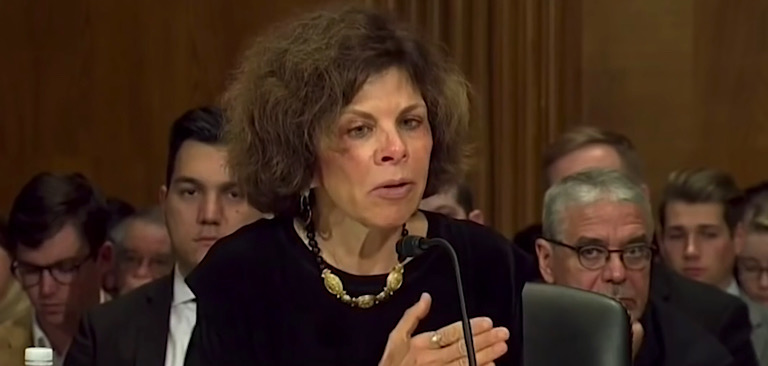During an interview, former ACLU president Nadine Strossen spoke out about Big Tech’s push to censor what it deems to be “hate speech” and “disinformation” and warned that such efforts do “more harm than good.”
Strossen made the comments when discussing historical attempts to censor other mediums and noted that the historical pro-censorship arguments are similar to those people make when advocating for online censorship of hate speech:
“I’ve heard the purported dangers about every new medium that’s come to my attention, starting with cable television, talk radio, video games and then the internet.
Every single one brought on this notion of, ‘never before has a medium reached so many, including so many children, and those are going to be especially vulnerable!’
The same thing was encountered with the invention of the radio or the telephone, in the 20th century, not to mention the printing press.”
If you look back at all of the attempts to censor other media when they were seen as being equally dangerous in their heyday, we now look back and say, well, that was completely wrong. The censorship did more harm than good.”
Strossen also noted that while she’s concerned about the power and lack of accountability of large social media platforms, she believes that pressuring them to censor disinformation or hate speech “does more harm than good.”
Additionally, she described efforts to drive “hate” out of online platforms as “futile.”
“Nobody expects that these problems are going to go away,” Strossen added. “I think they just assume, well, private censorship of hate speech does more good than harm, and so it’s worth pursuing.”
Instead of censoring hate speech, disinformation, and other types of content that are deemed to be “misleading,” Strossen proposed countering it with more information and education.
“People are always going to be exposed to hateful, misleading, potentially dangerous, potentially upsetting and traumatizing speech,” Strossen said. “And so we have to prepare people to deal with that.”
Strossen’s comments come as social media platforms are censoring unprecedented numbers of users and content under the guise of hate speech.
Facebook recently announced it had removed a staggering 22.5 million posts for hate speech in Q2 2020 and Twitter announced that 1.4 million tweets had been taken down for “hateful conduct” in the second half of 2019.
But Strossen isn’t the only one pushing back against Big Tech platforms and governments censoring what they deem to be hate speech.
Authors, comedians, and actors recently spoke out against Scotland’s draft “Hate Crime” bill, warning that “words, actions, or artwork” could be accused of stirring hatred, regardless of the intent, under this proposed law.













